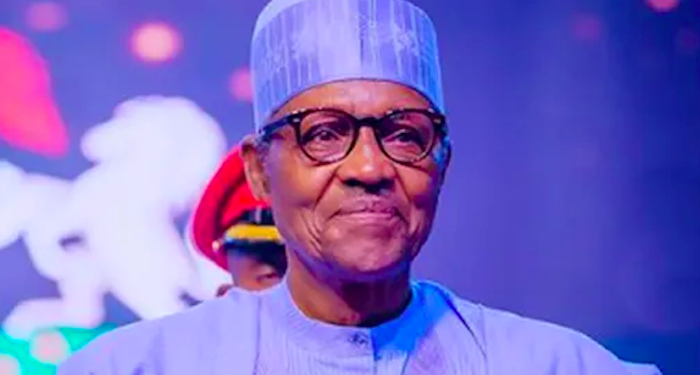Former Nigerian President Muhammadu Buhari, GCFR, has died at the age of 82 in a London medical clinic, according to a statement released by his family on Sunday afternoon.
The announcement, signed by his longtime spokesman Garba Shehu, confirmed the passing of the former president and military head of state, who had been undergoing treatment in London since April 2025.
“The family of the former president has announced the passing on of the former president, Muhammadu Buhari, GCFR, this afternoon in a clinic in London. May Allah accept him in Aljannatul Firdaus, Amin,” the statement read.
Buhari’s Health and Final Days
Initially described as a routine medical check-up, sources later confirmed that Buhari’s condition deteriorated shortly after his arrival in the UK, leading to an extended hospital stay. His long-standing health issues had been a recurring concern throughout his presidency and after his retirement.
Buhari’s death brings to a close a pivotal chapter in Nigeria’s modern political history.
A Military Leader Turned Elected President
Born on December 17, 1942, in Daura, Katsina State, Muhammadu Buhari rose through the ranks of the Nigerian Army, becoming a Major General before taking power in a 1983 military coup that ousted President Shehu Shagari. He ruled as Head of State from 1983 to 1985 until he was removed in another coup led by General Ibrahim Babangida.
His military regime was marked by the controversial War Against Indiscipline, an anti-corruption and public morality campaign that drew both praise and criticism for its authoritarian enforcement.
After years away from the spotlight, Buhari returned to politics in the early 2000s, running unsuccessfully for the presidency in 2003, 2007, and 2011. He finally succeeded in 2015, defeating incumbent Goodluck Jonathan under the All Progressives Congress (APC) platform—an unprecedented political moment in Nigeria’s history.
He was re-elected in 2019, serving until May 2023, when he handed over power to his successor, President Bola Ahmed Tinubu.
Legacy: Discipline, Controversy, and National Debate
Buhari’s presidency focused on anti-corruption, infrastructure development, and the fight against Boko Haram insurgents in the North-East. However, his tenure was not without controversy. Critics pointed to worsening insecurity, an underperforming economy, rising debt, and growing concerns over press freedom and human rights.
His frequent medical trips abroad, often without full public disclosure, stirred debate about the state of Nigeria’s healthcare system and presidential transparency.
Buhari retired to Daura in 2023, spending his post-presidency years mostly out of the public eye until news of his declining health surfaced earlier in 2025.
As tributes begin to pour in, Buhari’s complex legacy as both military ruler and democratic president will continue to spark debate in Nigeria and beyond.


